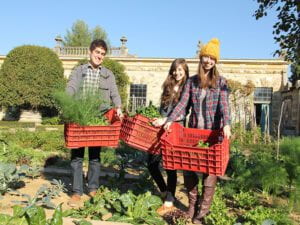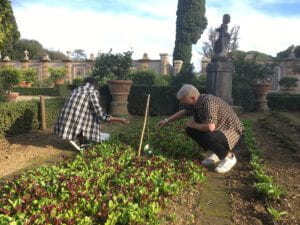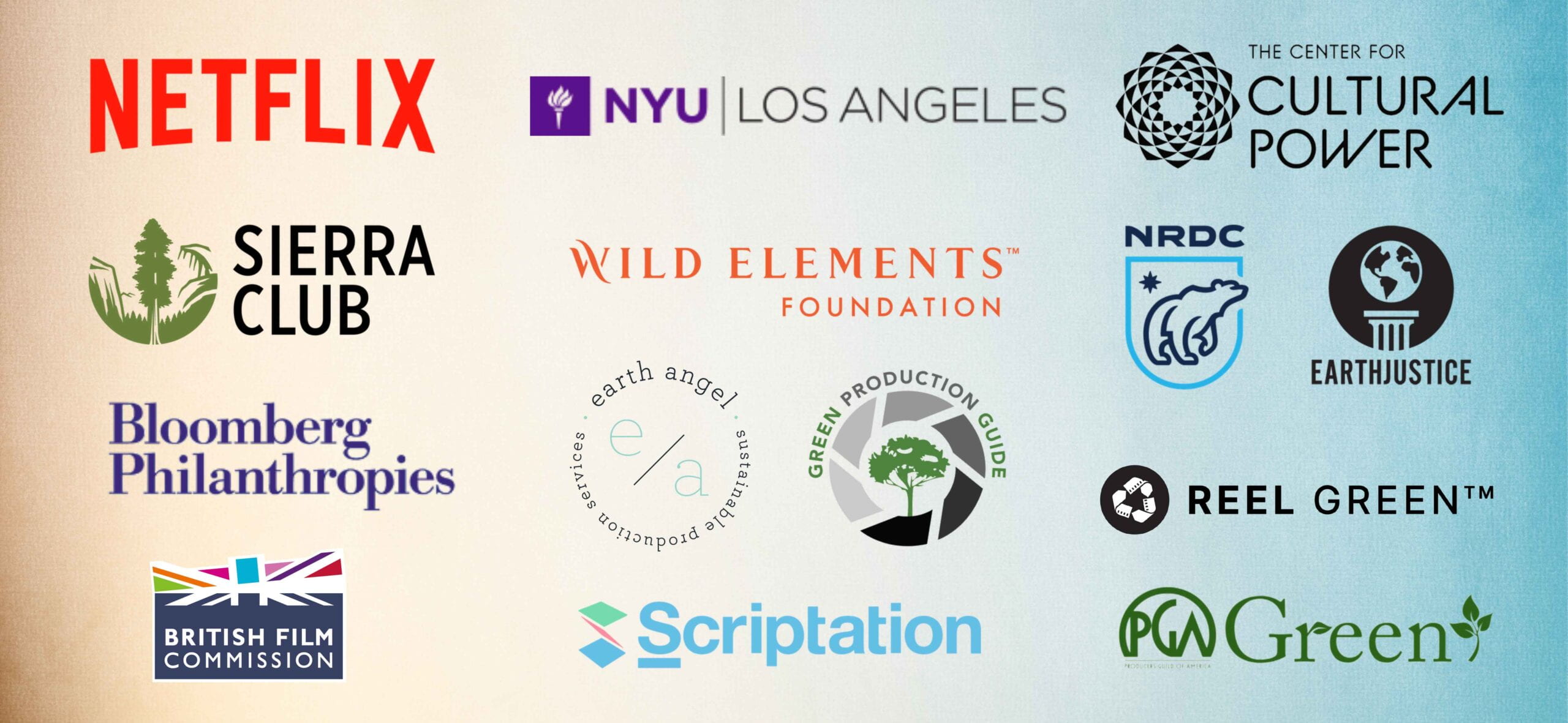NYU Florence does not offer your typical college experience. Located on the stunning Villa La Pietra estate, the 550-year-old, 57-acre academic center includes five historic villas, a world-famous art collection, Renaissance gardens, and lush olive groves. Prior to NYU inheriting it, the estate served as a retreat for its owners’ families. Today, it’s home to the NYU Florence community, connecting students and staff to the past—and to the world around them.
That’s why NYU Florence is committed to ongoing sustainability efforts, including growing their own food for the dining hall, launching a community farm, and optimizing museum operations for environmental sustainability, through the Terra Firma Firenze program. “The uniqueness of the center lies in its location in a well-preserved green area of the city; the buildings, the formal gardens, and the landscapes are visually and physically connected,” explains Francesca Baldry, Villa La Pietra’s collection manager. “When our students arrive, they become aware of how their well-being connects with the natural world.”
A Legacy of Self-Sufficiency

NYU Florence students harvesting vegetables in the pomario.
For hundreds of years, a variety of wealthy Florentine families called Villa La Pietra’s five villas home. During that time, Tuscany’s economy was agriculturally based, and the estate was largely self-sufficient, growing its own food, monitoring the soil, and carefully preserving water. “It’s important to remember that, though a villa always produces food, it is not a farm. Its overriding purpose is the well-being of the folk who live on the estate. Here, that’s the NYU Florence students,” says Nick Dakin-Elliot, a horticultural associate at NYU Florence. “At Villa La Pietra, for most of history, its agriculture has been largely self-sufficient, with a proven record of sustainability. And soon we’ll officially launch our community farm, marking a move to return to sustainable, healthy food production at Villa La Pietra.”
To this day, the estate features olive groves, vegetable gardens, and a pomario (a walled kitchen garden), which includes over 100 lemon and orange trees in individual terra-cotta pots. When students broached the subject of how they could eat the bounty of food grown on the grounds, staff began pondering the possibilities. “Students are always the focus of all of our efforts, and we always take their voices into consideration,” affirms Baldry.
Building a Hyper-Local Food System
Starting this spring, NYU Florence’s dining hall will serve food grown on the estate. First, students will have the opportunity to sow, water, and harvest crops at the community farm. Then, they can taste the fruits of their labor in their next meal. Cristina Fantacci Cellini, NYU Florence visit and event coordinator, adds, “Having a hands-on approach in the vegetable garden is a unique experience, which teaches students the value of fresh and organic produce and the importance of composting.”

NYU Florence students working in the no-dig vegetable garden.
In addition, the NYU Florence community can access a range of virtual and in-person lectures, workshops, and discussions to augment their connection to the center and the environment. Offerings include a discussion about caring for your veggies over coffee; a cooking lesson with black cabbage (also known as Tuscan kale), traditionally the only green vegetable available during late winter in Tuscany; and a foraging trip around the olive groves.
Green Initiatives Beyond the Garden
In addition to growing their own food, NYU Florence emphasizes sustainability in residence halls, classrooms, and the museum. In fact, Baldry recently shared NYU Florence’s efforts in relation to greening the museum and grounds as part of the Historic House Museums for a Sustainable World: Challenges and Opportunities conference organized by the International Council of Museums and DEMHIST. “In 2013 I read a book called The Green Museum, and I found it so inspiring!” says Baldry. “Is it possible, I asked myself, to spend less energy while still preserving artworks in a good museum environment?”
At Villa La Pietra, she’s doing just that. Museum staff aim to reduce energy usage and waste, consume less water, utilize eco-friendly supplies, and increase public participation in sustainability efforts. Furthermore, the whole community has drastically reduced its use of printed materials, banned single-use water bottles, and committed to using all recyclable products in the dining hall and at events. “We explore the concept of sustainability from many different angles,” concludes NYU Florence student Juancarlos (JC) Navarro. “It’s left us all with a refreshed perspective on our relationship to Tuscany’s beauty.”
Written by Dana Guterman
